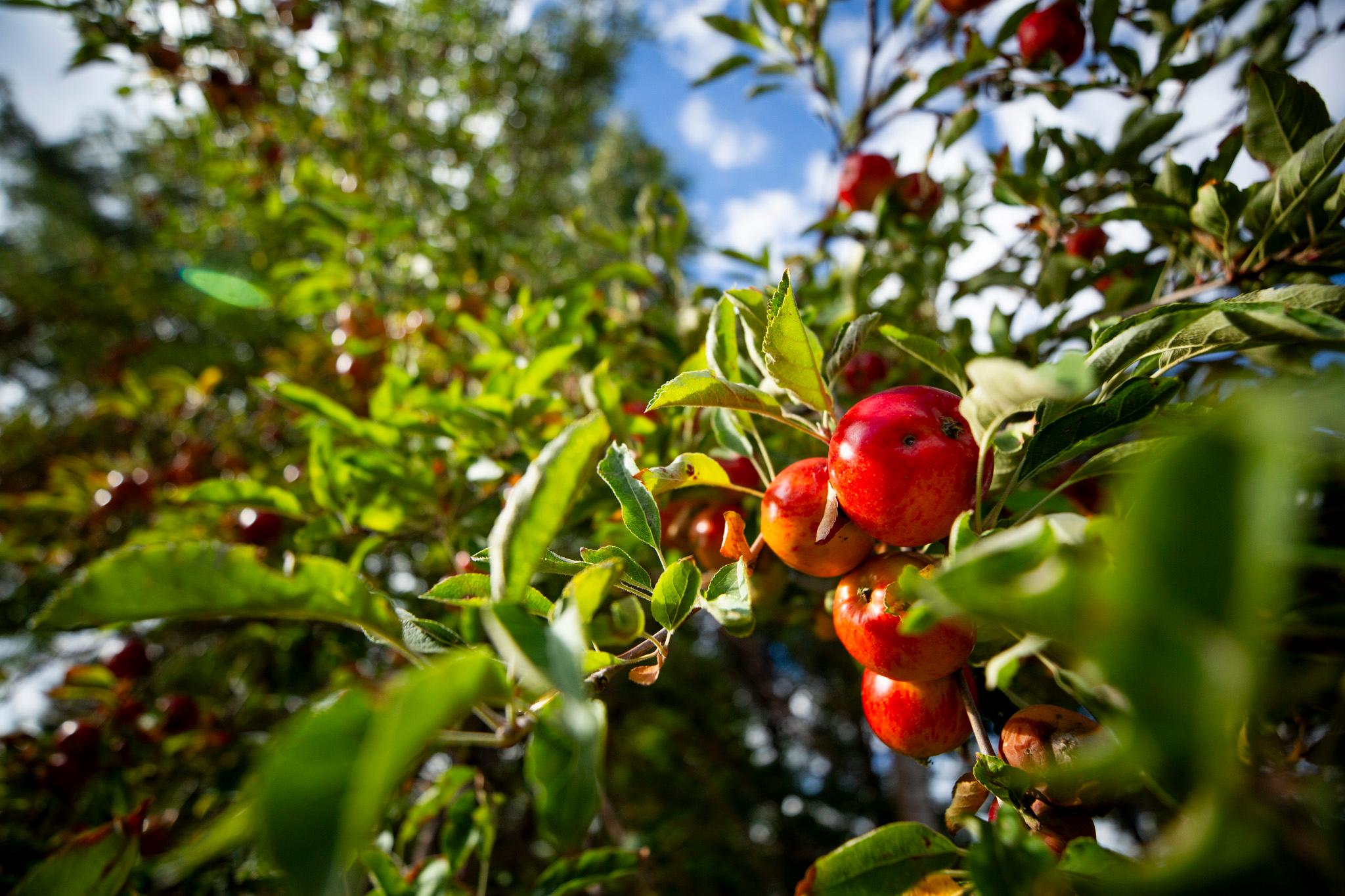The yards of many Denver homes are full of fruit trees — enough to provide literal tons of food for local communities. For the last six years, Barbara Masoner has led the effort to collect that harvest and ensure it goes to people who need it.
“Last year was our biggest year. We had 11,750 pounds. It was a banner year,” she said last week, as an army of volunteers got to work on a Lakewood yard filled with apples.
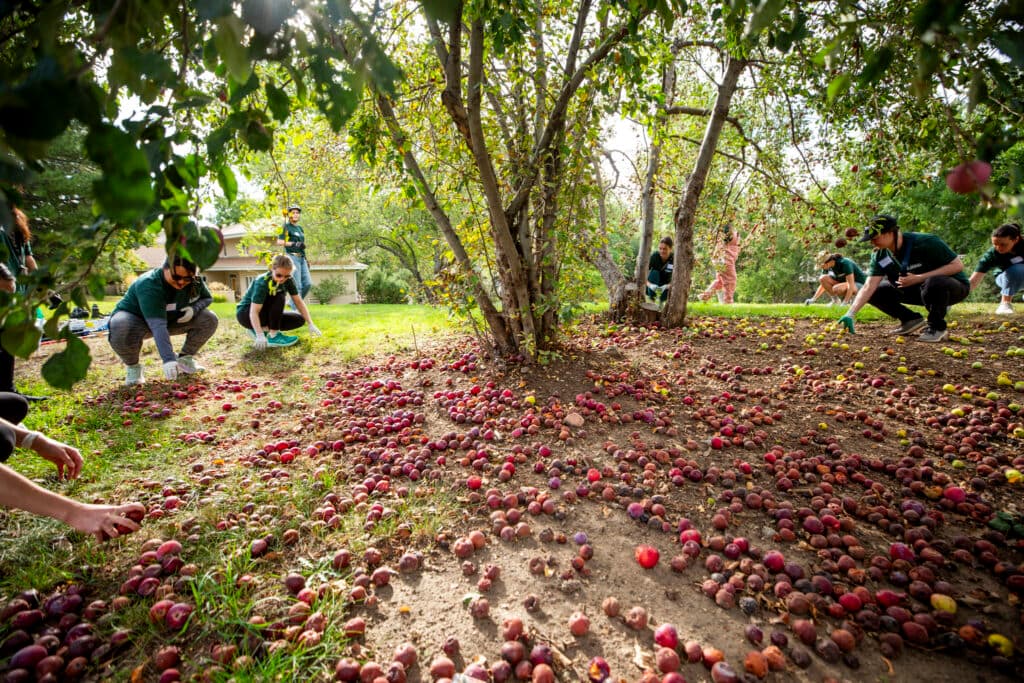
Her mission has always been to get spare food to people who need it. Her organization, Grow Local Colorado, spends each autumn gleaning for local food pantries. But, this year, the organization plugged right into a neighborhood that is hungry for produce. The fruit they plucked was delivered to Sun Valley Kitchen as it fed the neighborhood at its annual Harvest Fest last week.
The time was ripe to partner with the neighborhood. Sun Valley is home to most of the city’s publicly funded housing, which is just completing a transformation from old rowhomes to affordable highrises. As the area moves into a new era, some are working to ensure fresh food has room to grow here, too.
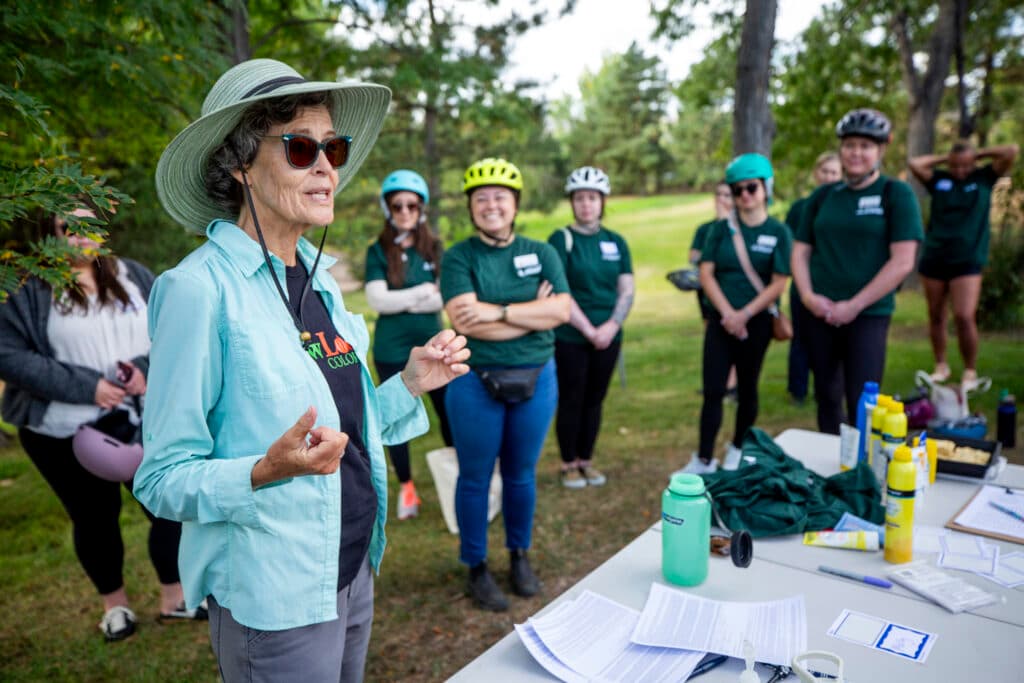
You don’t need to leave the metro to find a fresh harvest.
“I really appreciate you taking your time, sharing your energy with us on this very important mission,” Masoner told her crowd of volunteers. “We think everyone should have access to healthy, delicious food — apples.”
Her army of helpers, who came to her from the Junior League of Denver, were gobsmacked by the scene. An enormous yard, surrounding a modern mansion, was littered with apples that had already fallen from their branches. There were only a few trees at the edge of the lawn, but even more fruit hung above their heads, sumptuous orbs of red and pink and green.
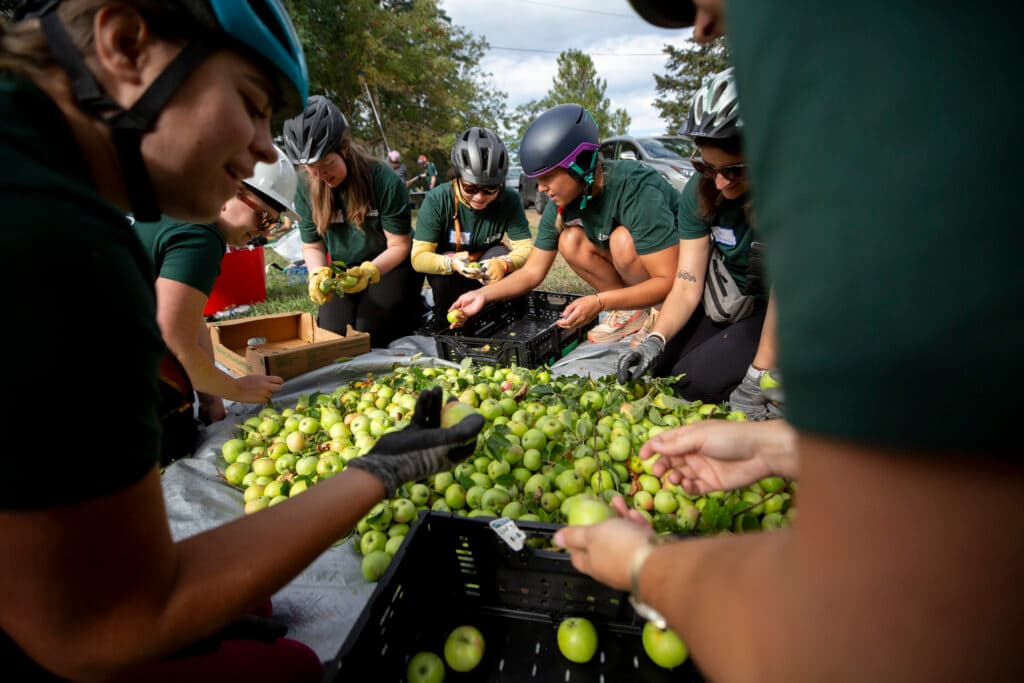
“It's really cool, just in the middle of a suburban neighborhood,” Madeline Green said as she adjusted a bike helmet on her head to protect from falling fruit. “I was expecting an actual agriculture field. Somebody can just use an extra one or two acres of land to make such a big impact.”
They stretched tarps beneath the trees as they shook the branches, watching apples fall into piles. Then they sorted them, picking out those meant to be eaten. Apples with dents and bruises would be turned into cider and applesauce.
Masoner cofounded Grow Local Colorado in 2008, with a vegetable garden in Civic Center Park that’s yielded thousands of pounds of food in recent years. The organization moved into fruit picking in 2019 with just a handful of volunteers. In past years, they’ve celebrated their work with an “apple-palooza” at a private home. This year was the first they celebrated, instead, with a community they aimed to serve.
Masoner added she could still use more volunteers this season — and would happily add more trees to her schedule. Anyone with an abundance can contact her via her website.
Grow Local found a hungry partner in Sun Valley Kitchen.
By noon, apples from the harvest had already been delivered to Sun Valley Kitchen, a nonprofit that’s worked to supply the neighborhood with healthy meals since 2013. More volunteers with Grow Local Colorado and its partners were already working to clean, chop, press and cook the bounty for people visiting the fall festival.
Nick Talarico, Sun Valley Kitchen’s director of operations, said the fruit is a meaningful solution to the neighborhood’s food access issues. There isn’t a grocery store nearby, and many people who live here rely on public transit when they do need to make a shopping trip. He was also surprised by Grow Local Colorado’s haul.
“It’s crazy. If you had asked me, I’d have said there’s no way there’s that many apples growing around the city,” he said.
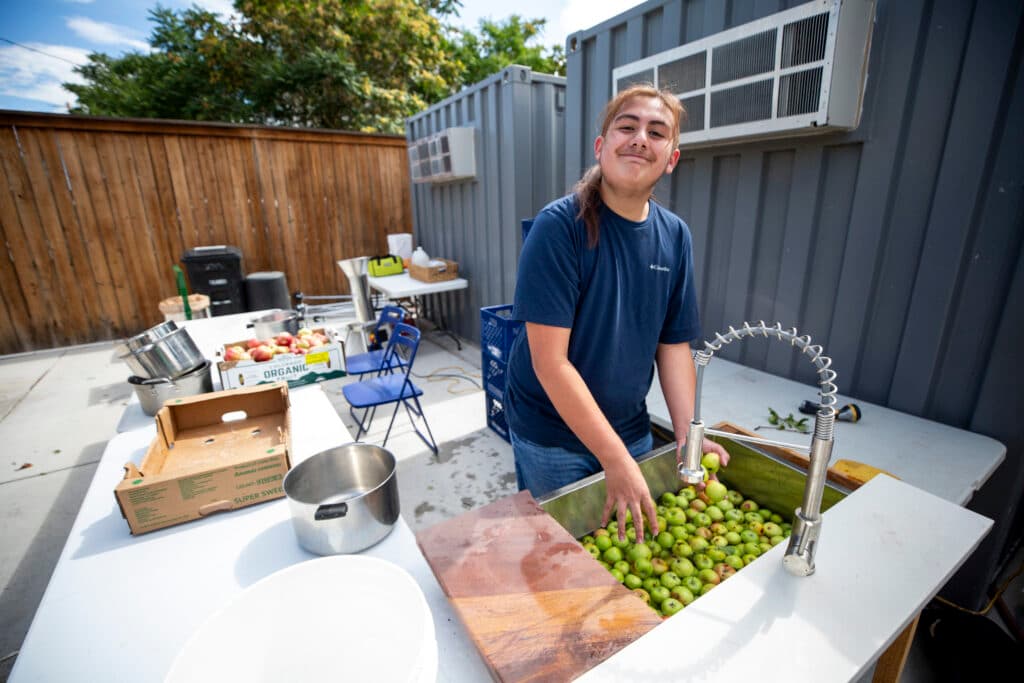
But he added this partnership does more than simply making food available for neighbors.
“What I really love about it is we’re providing fresh food to folks, but we’re also providing connection to the broader Denver area,” he said. ”That really opens an opportunity to build community, not just alleviating the food access issues but also that opportunity to be a neighbor to the folks that you live around.”
Talarico and Masoner said Denver’s office of Climate Action, Sustainability and Resiliency (CASR) was instrumental in getting them connected. Michelle Graham, a program manager with the office who made that connection, said the collaboration is central to Denver’s philosophy for weathering climate change impacts.
“When we think of climate resiliency, we also have to think about connectivity,” she said. “What are these community networks that exist? This model, that is community care, it’s really impactful and meaningful.”
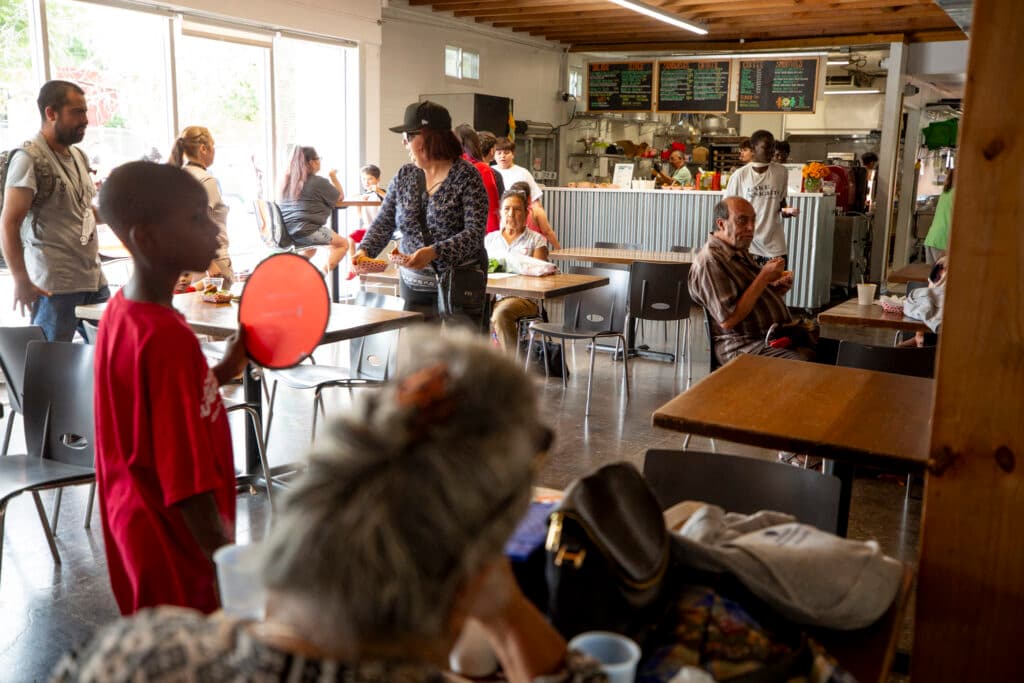
Sun Valley stakeholders are dreaming big for the future of food access.
One day, Talarico said, this neighborhood will grow its own food. He said Sun Valley Kitchen is working to create a robust garden near the Rude Recreation Center, at the neighborhood's edge, in partnership with Denver Parks and Recreation.
“I don’t know exactly what we’re gonna grow, but what we do know is we have about 8,000 square feet,” he said. “Our hope is that, yes, we’d have trees and it would be food-producing. The idea is we want to connect folks’ mind, body, spirit to how their food is produced.”
Sun Valley Kitchen would distribute crops through their no-cost grocery program for residents. He said the project is partially funded by grants, and that work should begin next year.
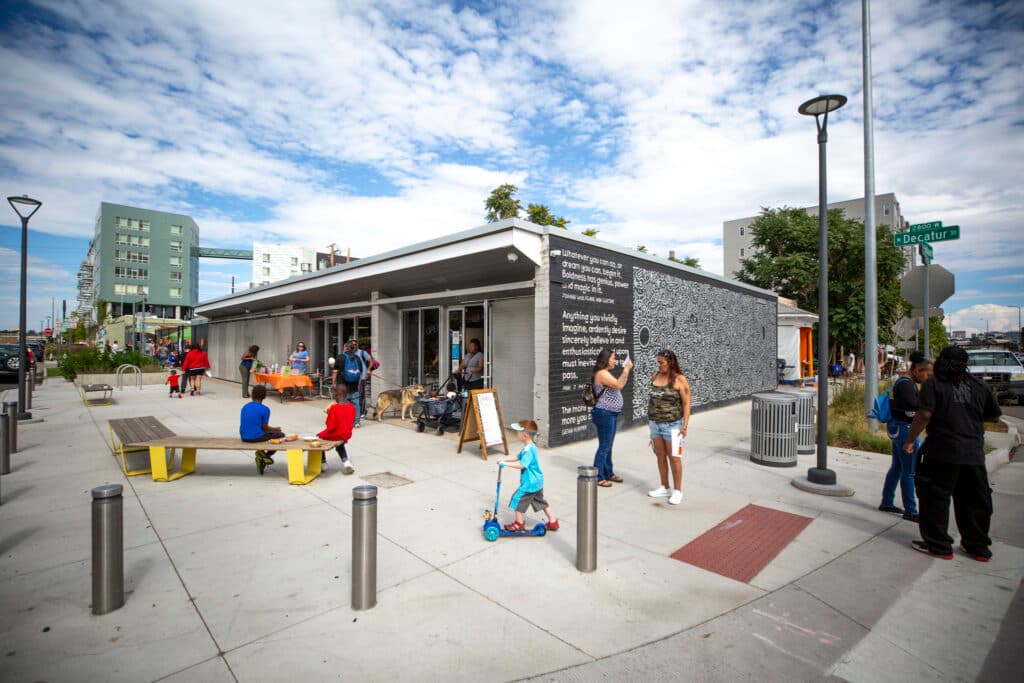
While Talarico said this will be more of a farm than an orchard, he has been in talks with Denver Urban Gardens (DUG) to add elements of a “food forest” to the mix — possibly an apple tree or two — which the organization has fostered in other green spaces across the city.
Creighton Hofeditz, who spearheads that effort for DUG, said the city’s existing food forests are still a few years away from yielding much of a harvest. Someday, they might create a steady stream of fresh, free food for Denverites.
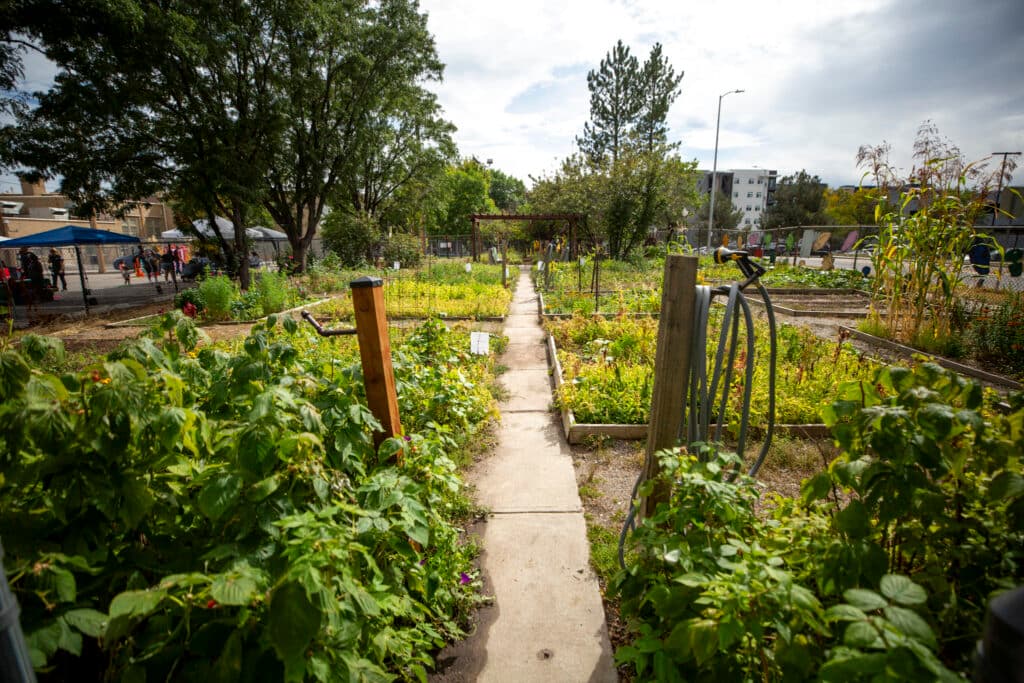
But expanding this effort into Sun Valley has been challenging in 2025. Public dollars he and Talarico thought might be available to fund Sun Valley’s project evaporated this year as President Donald Trump canceled federal grants.
“With the slashing of those grants (without cause, of course) we don't have as much flexibility but remain open and excited about the idea as their farm plans progress and as our funding situation becomes clearer in the future,” Hofeditz wrote to Denverite.
Still, Talarico said Sun Valley is moving toward its own sustainable, healthy future.
“It’s really exciting,” he said. “It’ll be really cool to see that farm producing food.”

